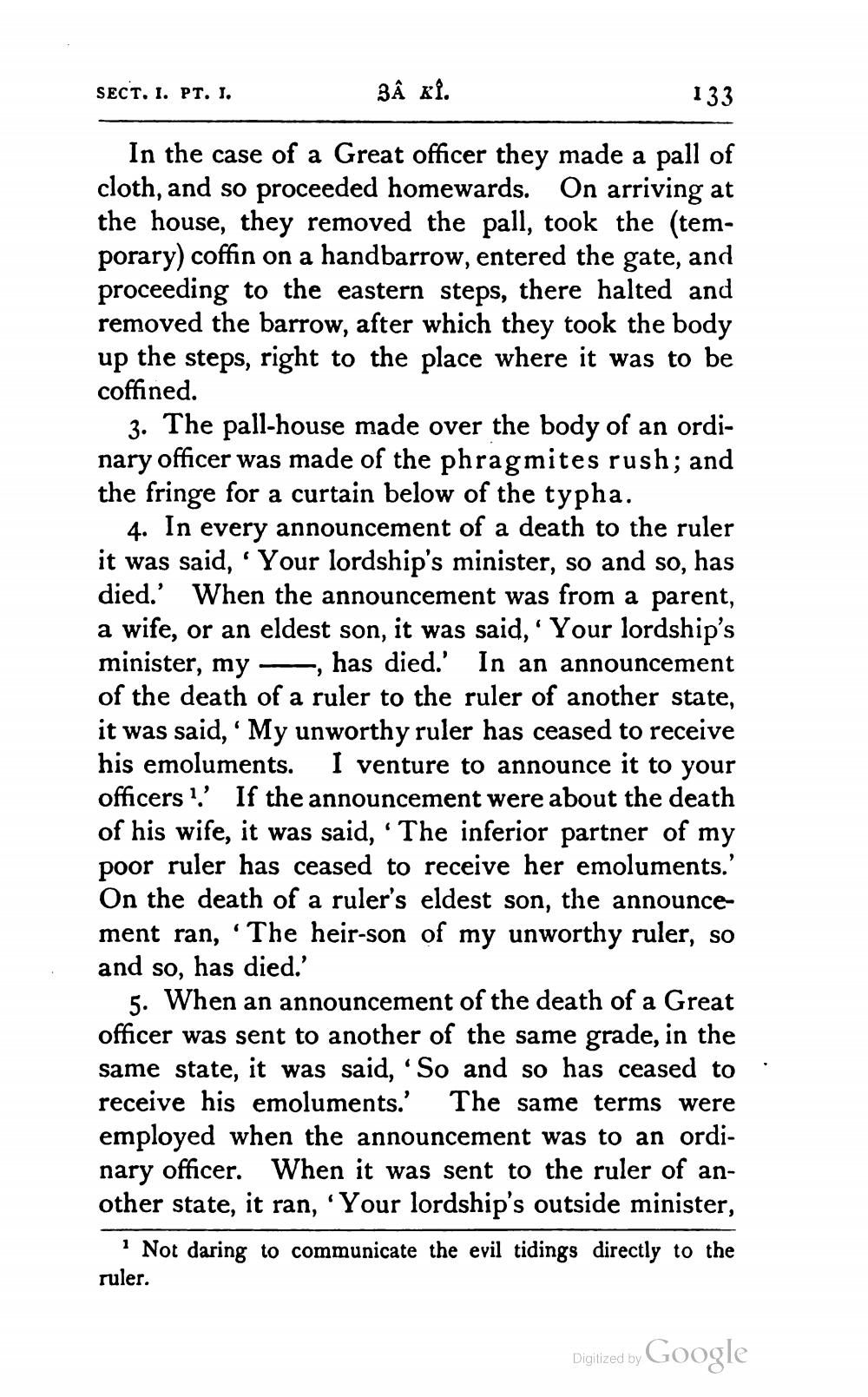________________
sect. 1. PT. 1.
ZÂ ki.
133
In the case of a Great officer they made a pall of cloth, and so proceeded homewards. On arriving at the house, they removed the pall, took the (temporary) coffin on a handbarrow, entered the gate, and proceeding to the eastern steps, there halted and removed the barrow, after which they took the body up the steps, right to the place where it was to be coffined.
3. The pall-house made over the body of an ordinary officer was made of the phragmites rush; and the fringe for a curtain below of the typha.
4. In every announcement of a death to the ruler it was said, 'Your lordship's minister, so and so, has died.' When the announcement was from a parent, a wife, or an eldest son, it was said, 'Your lordship's minister, my — , has died. In an announcement of the death of a ruler to the ruler of another state, it was said, 'My unworthy ruler has ceased to receive his emoluments. I venture to announce it to your officers?' If the announcement were about the death of his wife, it was said, 'The inferior partner of my poor ruler has ceased to receive her emoluments.' On the death of a ruler's eldest son, the announcement ran, 'The heir-son of my unworthy ruler, so and so, has died.'
5. When an announcement of the death of a Great officer was sent to another of the same grade, in the same state, it was said, 'So and so has ceased to receive his emoluments.' The same terms were employed when the announcement was to an ordinary officer. When it was sent to the ruler of another state, it ran, 'Your lordship's outside minister,
Not daring to communicate the evil tidings directly to the ruler.
Digitized by Google




